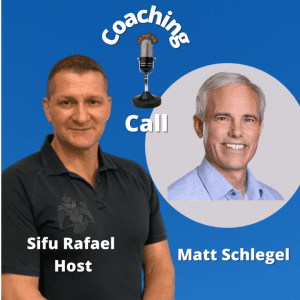
Honored to be on the Coach Call Podcast. Really enjoyed my conversation with expert coach and podcast host Sifu Rafael. We discovered that we had much in common in our early childhood experiences and influences.
Check out the podcast on any platform. Here are a few:
Spotify:
S3 Ep#44 Matt Schlegel: Teamwork • Coaching Call (spotify.com)
Apple Podcast:
Coaching Call: S3 Ep#44 Matt Schlegel: Teamwork on Apple Podcasts
iHeart Radio:
Follow Coaching Call:
Facebook: facebook.com/coachingcall
Instagram: instagram.com/coachingcall
Email: maxfitness@optonline.net
LinkedIn: linkedin.com/in/maxfitness
Youtube: https://bit.ly/coachingcallYoutube to watch the full interview.
